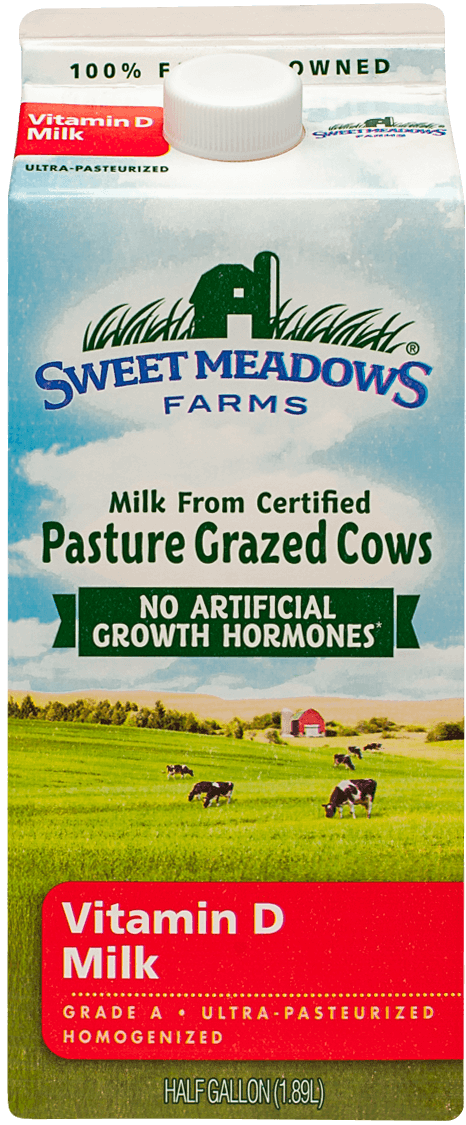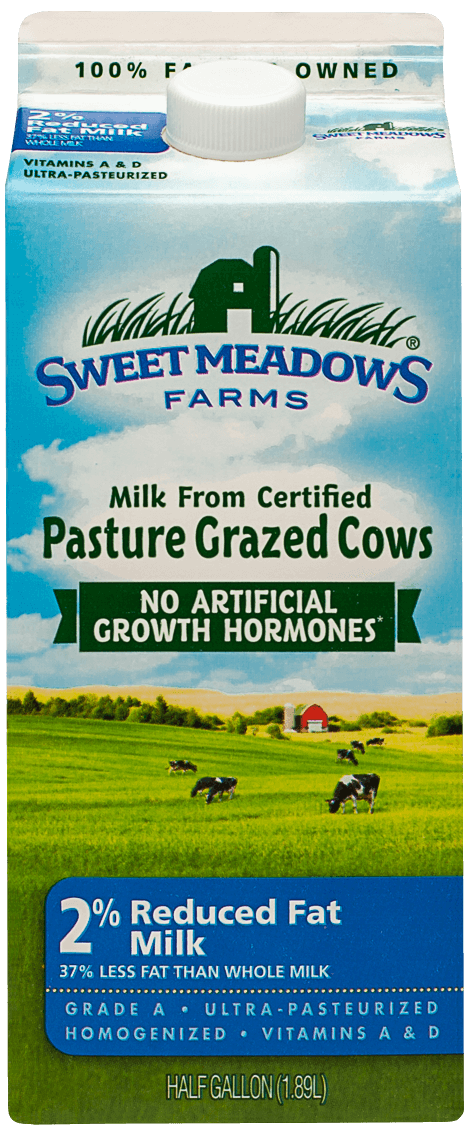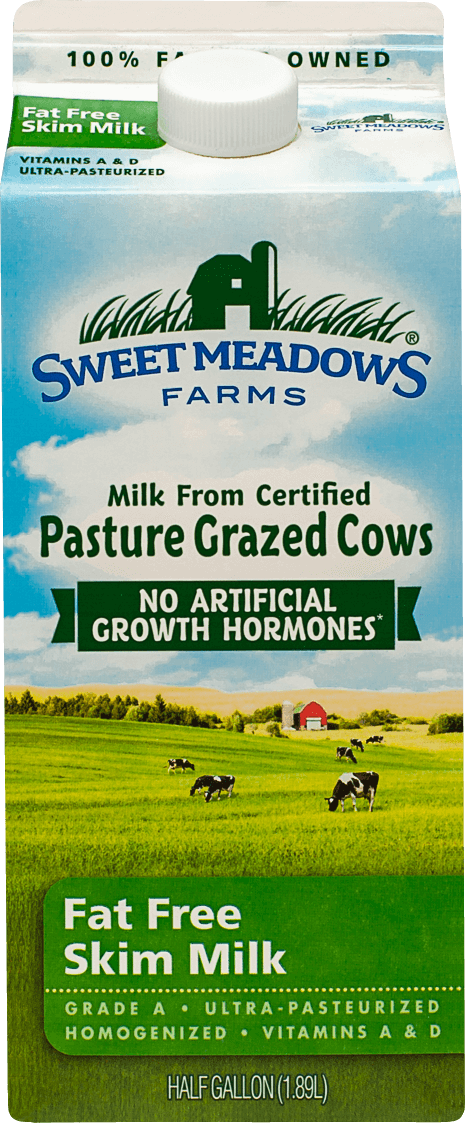The Sweet Meadows Farms pastured dairy protocols are designed to promote good animal husbandry and animal welfare practices for dairy cows. With these protocols, we want to set a practical framework for purchasing dairy products that come from farms using as much pasture as possible. The requirement for pasture access in these current protocols is to ensure that animals get exercise, fresh air and sunshine, and have the opportunity to express natural behaviors. It is also designed to address animal welfare issues. Due to differing circumstances in varying geographies, these protocols do not require that complete nutritional requirements be met by pasture alone. These standards do not take the place of federal, state or local regulations.
All dairy cattle used for Sweet Meadows Farms are to meet the minimum criteria as defined below:
- Dairy cattle are to be cared for in such a manner that promotes good animal husbandry practices.
- Dairy cattle are to be fed a plant-based diet. The feeding of animal by-products is strictly prohibited.
- Dairy cattle may not be administered recombinant Bovine Somatotrophin (rBST) or any other synthetic hormones to promote growth or milk production.
- No antibiotics or pharmaceuticals may be added to the feed of dairy cattle unless they are removed from the milking herd and are being treated for a specific diagnosed illness.
- Dairy cattle must have regular access to pasture.
- Animals must have access to pasture daily during the spring, summer and fall (roughly, from the beginning of April to the end of October);
- During the winter season, animals must have access to the outdoors and have room to roam on natural (non-concrete) surfaces, unless inclement weather prohibits access to outdoors (such as blizzards, drought, fire, floods, or excessive ice or snow).
- Animals must have access to adequate protection from the elements during severe weather.
- Housing requirement – housing must have adequate bedded space for all cows to lie down comfortably.
- All natural resources, including plants, soil, and water, are sustainably managed, while considering specific environmental and climate conditions.
- Commercially available medications are allowed to treat sick or injured animals, as long as all withdrawal periods are met and label directions are followed.
- Sick animals that need antibiotics must be treated and removed from the program until all withdrawal periods are met. Failure to treat sick animals will result in termination of a supplier from program.



